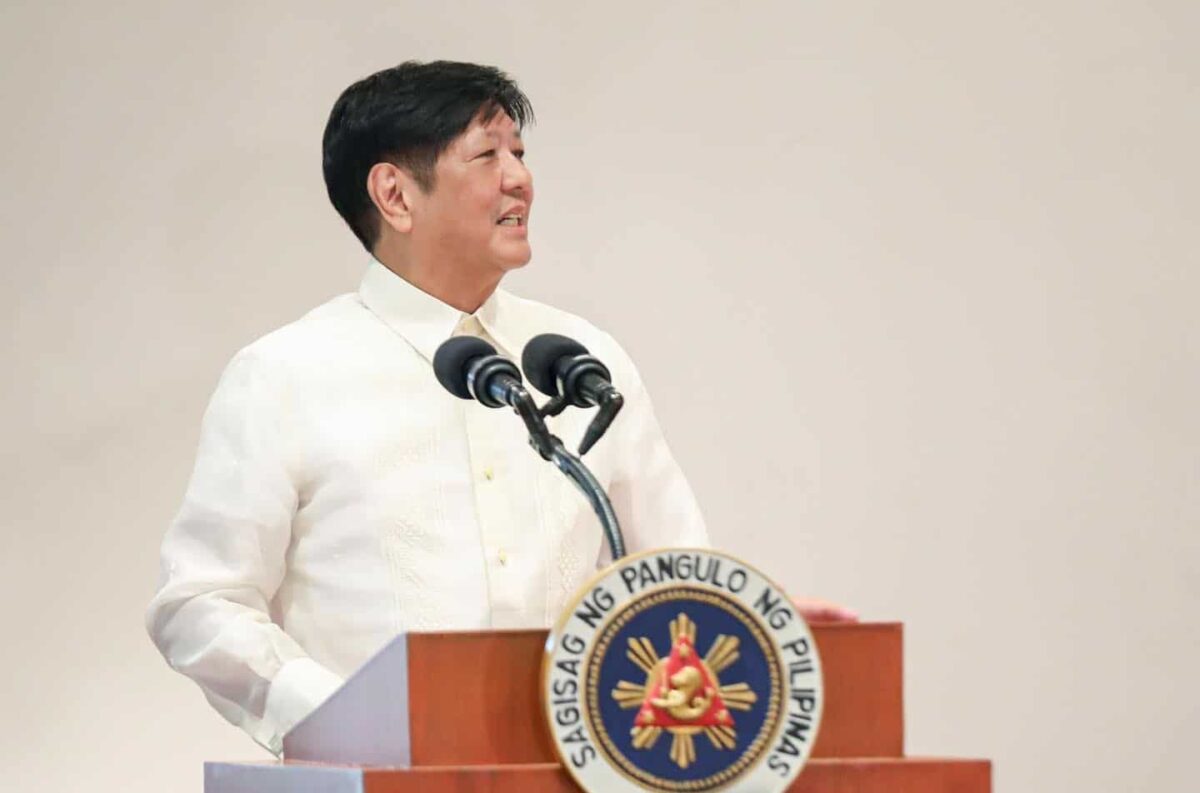Marcos inaugurates PH’s first lithium battery factory in Tarlac

FILE PHOTO: President Ferdinand Marcos, Jr. Photo from the official Facebook page of PCO
MANILA, Philippines — President Ferdinand Marcos Jr. on Monday inaugurated the country’s first lithium battery factory in Tarlac province.
Marcos said the opening of StB Giga Factory Inc., a manufacturing plant of advanced lithium iron phosphate batteries used in renewable energy and electric vehicle industries, is a “milestone” for the country, especially in creating a “sustainable, innovative, and transformative” future.
READ: Marcos: Private sector innovation needed to fight climate change
“This promises to be a first step in all that we are hoping to do. Not only to help and create jobs for Filipinos, not only to bring a transfer of technology to the Philippines but also because we now are able to do a very solid and serious step in mitigating and adapting to climate change,” he said.
“It sends this message to the world: The Philippines is now ready to innovate, to lead, to become the go-to destination for high-tech, high-impact investments.”
Article continues after this advertisement“As the first manufacturing plant in the Philippines for advanced iron phosphate batteries, often used in renewable energy and electrical vehicles, the StB Giga Factory sets the stage for the Philippines to become a player in clean energy storage in our part of the world, in Southeast Asia, in our region,” he added.
Article continues after this advertisementAccording to Marcos, StB Giga will be producing two gigawatt-hours of batteries annually once it hits full capacity by 2030, which is equivalent to around 18,000 electric vehicles and almost half a million home battery systems.
It will also create 2,500 direct and indirect jobs for Filipinos by 2030.
In terms of economy, the factory is expected to contribute P5 billion annually.
Marcos said the factory could entice more investors in renewable energy as the facility would run in tandem with the country’s renewable energy landscape.
He also noted how the StB Giga’s plan to enter the electronic vehicles (EV) product market in the coming years align with the country’s plans to reduce its reliance on imported fuels.
“This certainly aligns with our plans to develop the country’s EV industry and produce locally-made EVs and EV components, reducing our reliance on imported fuel,” he said.